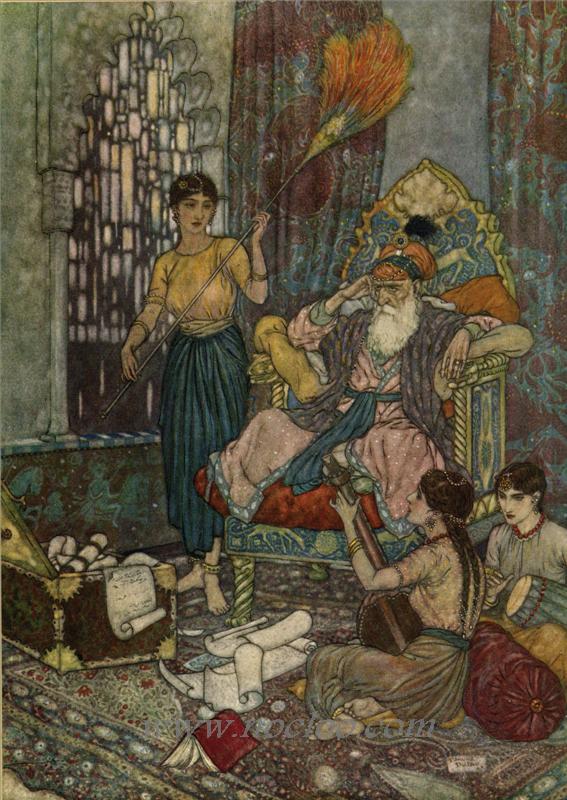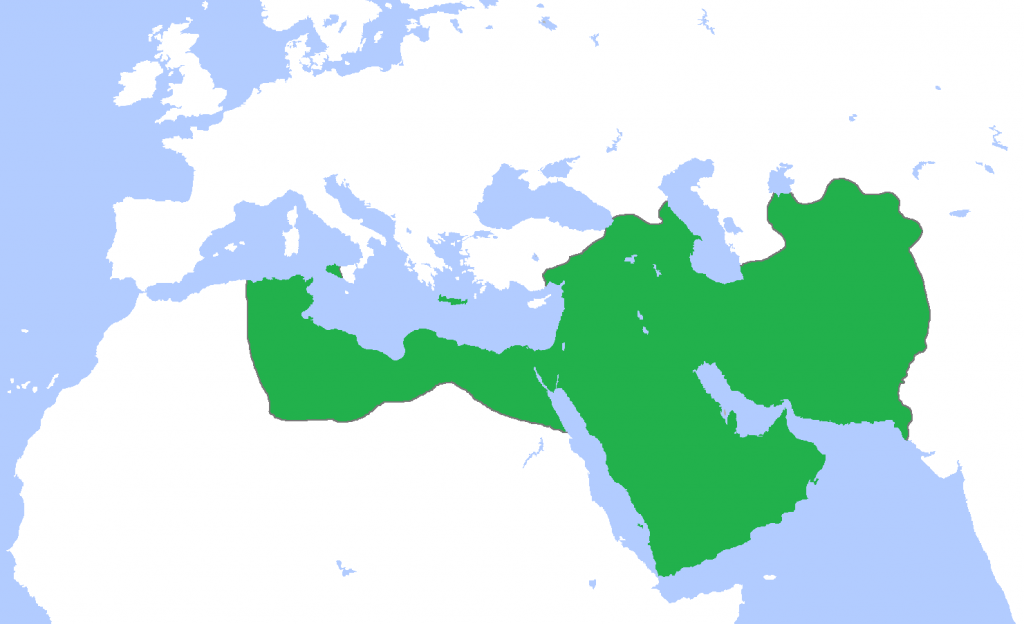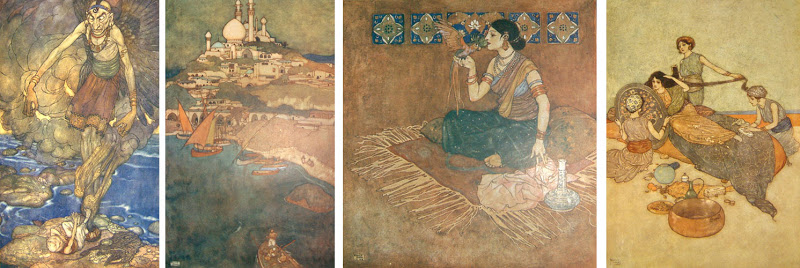 It’s time to confront a Muslim myth that has widespread currency even among Westerners who are not favourably disposed towards the Muslim religion. And for good measure for the benefit of those readers who seem to think the historical Caliphate was the ideological precursor of Islamic State, I will toss in a second measure of historical fact. The subtext here is that certain facts pull the rug from beneath certain myths embraced by certain Westerners who have certain negative attitudes towards Muslims. Don’t get me wrong. I have no love for the Muslim faith any more than I do for any other religion. And yes, there is no doubt that Islam has a long way to go to catch up in all respects with contemporary Western values grounded as they are in humanism, secularism, rationalism, what have you. (I’m speaking idealistically of Western values, of course. I also roll my eyes sometimes at the hypocrisy of some anti-Muslim Westerners given that Westerners themselves have only oh so very recently come to some of their own more enlightened perspectives.)
It’s time to confront a Muslim myth that has widespread currency even among Westerners who are not favourably disposed towards the Muslim religion. And for good measure for the benefit of those readers who seem to think the historical Caliphate was the ideological precursor of Islamic State, I will toss in a second measure of historical fact. The subtext here is that certain facts pull the rug from beneath certain myths embraced by certain Westerners who have certain negative attitudes towards Muslims. Don’t get me wrong. I have no love for the Muslim faith any more than I do for any other religion. And yes, there is no doubt that Islam has a long way to go to catch up in all respects with contemporary Western values grounded as they are in humanism, secularism, rationalism, what have you. (I’m speaking idealistically of Western values, of course. I also roll my eyes sometimes at the hypocrisy of some anti-Muslim Westerners given that Westerners themselves have only oh so very recently come to some of their own more enlightened perspectives.)
Fact one: there is no evidence to support the story that the seventh century Arab conquests were inspired by Muhammad and with the goal of spreading the Muslim religion. None. Zilch. Forget that porky you have carried around for years now that says the Muslim religion was born and weaned in bloody jihad. There is no evidence to support this claim.
 Some Zionist Jews cling to the myth that God ordered their ancestors to kill off or expel all native inhabitants of Palestine and that the Bible records this command and first (incomplete) effort to carry it out. This myth validates their contemporary efforts to push out and replace the Palestinians from their West Bank holdings. Historians know the original story is a myth, so where did it come from? I personally side with the scholarship that places the emergence of this myth to the Second Temple era in order for the new settlers (settled at the behest of the Persians) to justify their displacement of the locals. But that’s another story for another time. My point is that the story of Arabs mounting their horses and riding out with swords raised to conquer the bulk of the Middle East and North Africa all in the name of Allah and Muhammad his prophet with the intention of converting every male to praying five times a day and every woman to wearing the burqa is without any foundation. It’s a myth. The story is a religious myth, a little like the story of Joshua conquering Jericho and the promised land. I say “a little like” because there is some truth there. Only one has to pull apart the story to find it. I have posted about this before, so permit me to quote myself at this moment:
Some Zionist Jews cling to the myth that God ordered their ancestors to kill off or expel all native inhabitants of Palestine and that the Bible records this command and first (incomplete) effort to carry it out. This myth validates their contemporary efforts to push out and replace the Palestinians from their West Bank holdings. Historians know the original story is a myth, so where did it come from? I personally side with the scholarship that places the emergence of this myth to the Second Temple era in order for the new settlers (settled at the behest of the Persians) to justify their displacement of the locals. But that’s another story for another time. My point is that the story of Arabs mounting their horses and riding out with swords raised to conquer the bulk of the Middle East and North Africa all in the name of Allah and Muhammad his prophet with the intention of converting every male to praying five times a day and every woman to wearing the burqa is without any foundation. It’s a myth. The story is a religious myth, a little like the story of Joshua conquering Jericho and the promised land. I say “a little like” because there is some truth there. Only one has to pull apart the story to find it. I have posted about this before, so permit me to quote myself at this moment:
So were the Arab conquests inspired by Muhammad and their zeal to spread the Muslim faith? For that we have no evidence. I don’t mean there is no evidence for the seventh century Arab conquests. They are not doubted. But what is open to question is whether these Arabs were adherents to Islam at that time. Or did the Muslim religion appear subsequent to those conquests? When the Romans or Persians conquered territories they left indisputable evidence of who they were and what they believed. When the Arabs conquered both Christian and Jewish peoples they left no evidence that at that time they belonged to any particular religion. Apparently some Christians feared they were in league with the Jews because they allowed Jews to return to some of their places of prayer. Particularly curious is that there is no mention of Muhammad in any of their coins or other records pertaining to this period. Another curious datum from the documentary (not in the interview) is that the earliest known mosque in the Palestine region is not facing Mecca, but east, for prayer. The first coin with the name Muhammad on it does not appear until around fifty years after the conquests of Palestine.
Check the original and related posts for the details. Or if you’d rather simply disbelieve any of this and prefer to repeat stories of the bloody and barbaric intrinsic nature of the very essence of the Islamic religion itself then please go away and do something more useful with your time than fuming in anger over what you are reading here. Okay, now what about this business of “the ideology of the Caliphate” as if the Caliphate is some apocalyptic foreshadowing of Islamic State with all its beheadings and other obscenities and horrors towards women, men, young, old, everyone….?

But take a look at the Islamic State’s propaganda, and you will see that from its founding the group has sought to restore the glory days of the Abbasid caliphate based in Baghdad, especially the era of Harun alRashid of 1,001 Nights fame. “Know that the Baghdad of alRashid is the home of the caliphate that our ancestors built,” proclaimed an Islamic State spokesman in 2007. “It will not appear by our hands but by our carcasses and skulls. We will once again plant the flag of monotheism, the flag of the Islamic State, in it.” That same year, the Islamic State’s first ruler, the aptly-named Abu Umar al-Baghdadi announced IS’s claim to the city: “Today, we are in the very home of the caliphate, the Baghdad of alRashid.” Even after the Islamic State established its primary base of operations in Syria’s Raqqa province, once home to Harun alRashid for several years, and captured Mosul in Iraq, its spokesman still referred to “the Baghdad of the Caliphate” and “the Baghdad of alRashid.”
The Islamic State’s plan to revive the Abbasid caliphate in Baghdad has two problems. The first is ideological: Harun alRashid was not terribly pious — he enjoyed poetry about wine and young boys — and his court valued unfettered intellectual debate and pagan Greek learning, which are anathema to ultraconservative Salafis like those running the Islamic State. But it is alRashid’s power the jihadists remember, not his impieties. The second problem is demographic, which cannot be resolved by selective memory: most of Baghdad’s inhabitants are Shi’a. They will not give it up without a fight. Neither will Baghdad’s patrons in Iran.
Tales of the Arabian Nights, poetry, wine, young boys, Baghdad itself . . . . not quite the template of today’s Islamic State! Time is long overdue for a few more Westerners to learn the facts and kick aside their former ignorance and blind-hostility to the mere echo of the word “Muslim”, or “Islam”. And of course Qutb could have learned a bit more had he lived to read the critical historical works available today. But what good would reading have done if his mind had been as closed as the minds of many Islamophobic (perish the term!?) Westerners today! 
